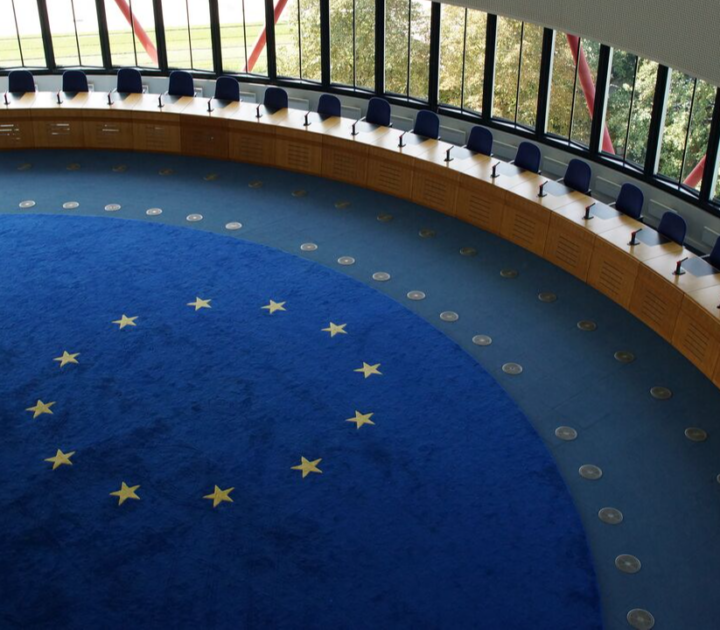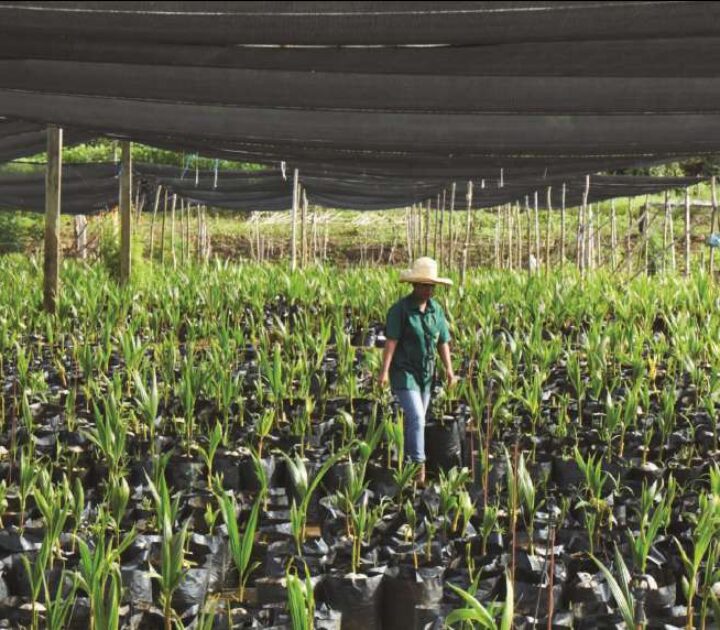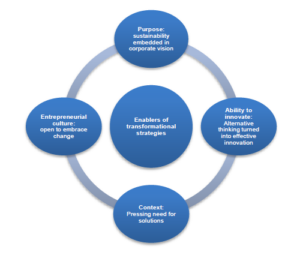
Sustainability leaders in emerging markets
Leading domestic firms in emerging markets are advancing the global debate on corporate sustainability by coming up with innovative programs and initiatives that question and reinvent traditional business paradigms and models. These firms are driven by a strong belief that managing a business responsibly is the only way to create long-term sustainable growth. Despite the wide variety of sustainability approaches in emerging markets, we believe emerging market firms are pioneering a “transformational approach” to corporate sustainability which sets them at the forefront of innovation in this field. Their innovative thinking and the solutions adopted are creating transformational business models.
The high level of competence of developing market companies has begun receiving recognition in the last decade, when leading emerging market players began their internationalization. Very few businesses from emerging economies are able to dedicate time or invest resources in “non-essential” activities. The fact that they are making sustainability a priority shows that they are sure that corporate-driven sustainable development is not an option but a necessity, even in economies with low levels of corporate wealth and income.
So what is driving emerging market companies in their transformational approach? One set of drivers might be common to most firms, such as cost savings or stakeholder pressures. Others are uniquely local and depend on the specific context of the communities where firms operate. For example, take India, where power outages require an alternative form of energy, or Brazil, where farming requires far more water than is naturally available, thus triggering initiatives for better irrigation.
Context is a powerful driver of the sustainability agenda of emerging market firms, but it is not the only one. Our research shows that it is the company’s “purpose” or corporate vision that drives, to a large extent, its approach and commitment to pursuing a sustainability agenda that is integrated with its corporate and business strategy. This vision acts as a lens through which companies look at their businesses, putting sustainability and responsible leadership at the center. In the examples analyzed, we observed how having a strong purpose could re-define or change a company’s core business and deliver radical, long-term solutions as opposed to modest changes in business systems.
What it takes to deliver transformational solutions
Four interconnected enabling factors prevail in those companies with sustainability agendas that lead to transformational approaches; purpose, external context, entrepreneurial culture and ability to innovate.
Purpose: Purpose-driven firms show a strong commitment to contributing to the economic and social development of their communities and countries. This is particularly evidenced in family-run businesses, where often a strong vision has been transmitted and shaped through generations of family management. Companies true to their purpose and principles create and filter business strategy and operations around these. For example, the Indian multinational Tata Group has grown around the notion of improving the quality of life of the communities it serves. It triggers long-term value creation based on “Leadership with Trust”, one of its basic business principles, convinced that “returning to society what we earn” builds trust and leadership among stakeholders.
External context: In countries where there is an urgent need to act on key social and economic issues, emerging market firms have the opportunity to inspire change by identifying solutions to ensure long-term economic and human development for all. In the case of the Indian IT leader Wipro, India, as its home market, offered a broad range of issues to address. But the company chose to focus on a central issue with a multiplier effect, where it could achieve greater impact. It deliberately works on systemic reforms in education – linked to developing the technological capacity of the country – as opposed to working on developing an educational infrastructure. By operating this way, it prioritizes improvements in the quality of learning.
Entrepreneurial culture: Beyond the two above-mentioned factors, there needs to be an entrepreneurial mindset and culture engrained in the organization in order to engender transformational solutions. An entrepreneurial culture implies that the organization is open to new ideas, inputs and sources of supply, willing to explore new ways of looking at issues, and ready to test and apply.
Ability to innovate: Sustainability leaders in emerging markets have generated innovation across a number of business areas, from processes and systems to inputs and finished products. Some of the most radical (and in many cases simplest) innovations in energy and product development have emerged in developing countries. This ability and urge to innovate derives from a combination of the external context, entrepreneurial culture and willingness to invest resources in order to tackle issues effectively. These firms have also shown a large capacity to execute with agility and roll out new models effectively.
Braskem, the Brazilian petrochemical company, which started off by producing bio-plastics out of sugarcane, exemplifies both the entrepreneurial spirit and the ability to innovate. Over the years, it has created a powerful R&D capability by investing in specialized laboratories and pilot plants – for testing and adjusting – and by establishing partnerships with governmental innovation agencies, universities and other relevant stakeholders.
Firms in mature markets can learn from these emerging market players by developing the capacity to view their businesses through sustainability lenses and by capitalizing on sustainable business opportunities for value creation. In our second article of this series on sustainability in emerging markets, we will look at the different types of strategies adopted by these players.
Francisco Szekely is Adjunct Professor of Leadership and Sustainability at IMD.
Victoria Kemanian is Director of Latitude, a Lausanne-based consulting firm.
Research Information & Knowledge Hub for additional information on IMD publications

in I by IMD 10 April 2024

IMD World Competitiveness Center Report, 8 April 2024
in Journal of Management 5 April 2024, ePub before print, https://doi.org/10.1177/01492063241240713

in I by IMD 20 March 2024


Research Information & Knowledge Hub for additional information on IMD publications
Research Information & Knowledge Hub for additional information on IMD publications
Research Information & Knowledge Hub for additional information on IMD publications
in I by IMD 10 April 2024
Research Information & Knowledge Hub for additional information on IMD publications
IMD World Competitiveness Center Report, 8 April 2024
Research Information & Knowledge Hub for additional information on IMD publications
in Journal of Management 5 April 2024, ePub before print, https://doi.org/10.1177/01492063241240713
Research Information & Knowledge Hub for additional information on IMD publications
Research Information & Knowledge Hub for additional information on IMD publications
Research Information & Knowledge Hub for additional information on IMD publications
in I by IMD 20 March 2024
Research Information & Knowledge Hub for additional information on IMD publications
Research Information & Knowledge Hub for additional information on IMD publications
Case reference: IMD-7-2282 ©2022
